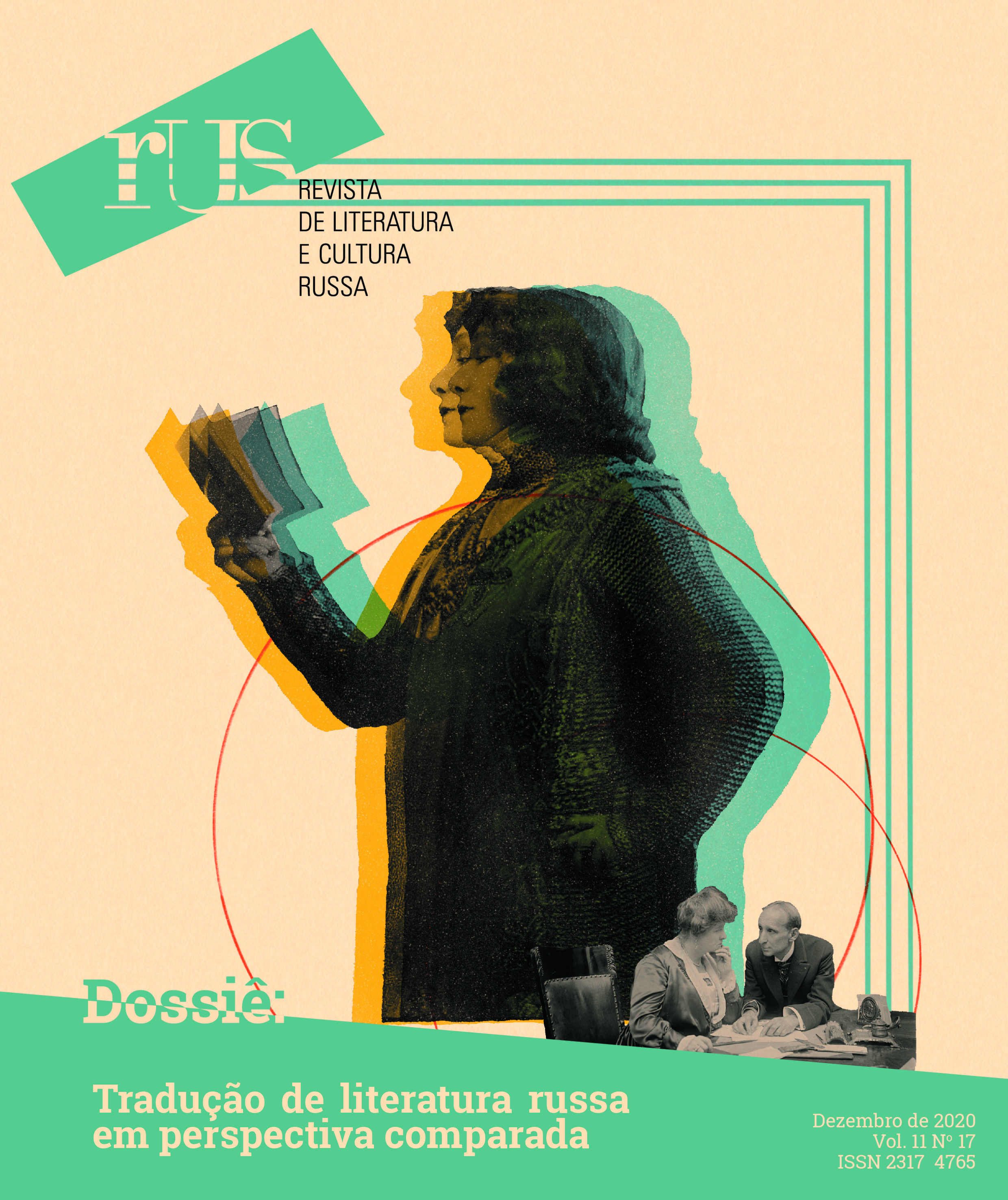The ficcional time in literature and it’s models
DOI:
https://doi.org/10.11606/issn.2317-4765.rus.2020.168663Keywords:
Objective time, Subjective time, Historical time, Mythological time, Reversible timeAbstract
Abstract: The article describes the features of artistic time in literature and its main models illustrating them by examples from Russian literature. The specificity of artistic time is revealed in comparison with objective time. It is shown that the main characteristics of objective time, such as objectivity, linearity, irreversibility, monotony and continuity in artistic time are not maintained, because it is always subjective time. This is evident when analyzing the historical time model, which claims to reproduce objective time. Next, we describe four more time models that are most commonly used in the literature: mythological time, which is distinguished by it’s cyclic character, reversible time, moving from the present to the past, the model of stopped time and the integrating time model, which represents the existing past, present, and future in an undifferentiated unity.
Downloads
References
DOSTOIÉVSKI, F. M. Prestuplenie i nakazanie. In: Sobranie sot-chinenii. Moscou, 1957. Tom 5.
ELIADE, M. Kosmos i istoriia. Moscou, 1987.
ELIADE, M. Siiashchennoye i mirskoie. Moscou, 1994.
ELIADE, M. Aspekti mifa. Moscou, 1995.
FREIDENBERG, O. M. Mif i literatura drevnosti. Moscou, 1978.
GUREVITCH, A. Ia. Kategorii srednevekovoi kulturi. Moscou, 1972.
GÓGOL, N. I. “Starosvetskiie pomeshchiki”. In: Polnoie sobra-niie sotchinenii v 14 tomakh. Moscou-Leningrado, 1937. Tom 2. GONTCHAROV, I. A. Oblómov. Vilna, 1954.
LÉVY-BRUHL, L. Pervobitnoie michliéniie. Leningrado, 1930.
KHIUBNER, K. Istina mifa. Moskva, 1996.
LOTMAN, IU. M. “Proiskhojdeniie siujeta v tipologuitcheskom osveschenii”. In: Stati po tipologuii kulturi: V 2 t. Tartu, 1973. T. 2. MELETINSKI, Ie. M. Poetikamifa. Moscou, 1976.
MELETINSKI, Ie. M. Mifi narodnogo mira. Moscou, 1980. Tom 1.
MELETINSKI, Ie. M. Ot mifa k literature. Moscou, 2001.
PÚCHKIN, A. S. Mednii vsadnik In Izbrannoie. Moscou, 1978.
STEBLIN-KAMENSKI, M. I. Mif. Moscou, 1976.
TCHEKHOV, A. P. “Student”. In: Sobraniie sotchinenii v dve-nadtsati tomakh. Moscou, 1985. Tom 8.
TIÚTCHEV, F. I. Izbrannoie. Moscou, 1974.
TOLSTÓI, L. N. Khadji-Murat. Moscou, 2017.
Tradução de Denise Regina de Sales
Downloads
Published
Issue
Section
License
Copyright (c) 2020 Andrey Kofman

This work is licensed under a Creative Commons Attribution-NonCommercial-ShareAlike 4.0 International License.
Authors who publish in RUS agree to the following terms:
a. Authors retain copyright and grant the journal right of first publication with the work simultaneously licensed under a Creative Commons Attribution 4.0 International License (CC BY-NC-SA 4.0) that allows others to share the work with an acknowledgement of the work’s authorship and initial publication in this journal.
b. Authors are able to enter into separate, additional contractual arrangements for the non-exclusive distribution of the journal’s published version of the work (e.g., post it to an institutional repository or publish it in a book), with an acknowledgement of its initial publication in this journal.
c. Authors are permitted and encouraged to post their work online (e.g., in institutional repositories or on their website) prior to and during the submission process, as it can lead to productive exchanges, as well as earlier and greater citation of published work (See The Effect of Open Access).





